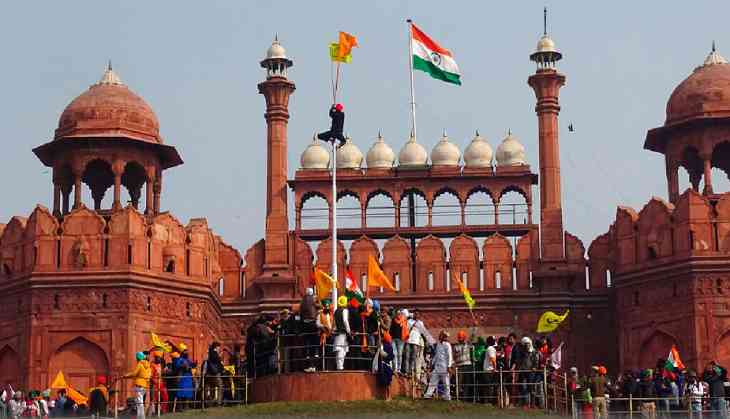
When farmers' tractors go amok on Delhi roads on Republic Day, some protesters wielding swords and lathis chase policemen, and residents of Delhi fear to step out of their homes, this increasingly appears to be the fate of Delhi.
The national capital is increasingly being treated as the guinea pig for all kinds of political and social experiments.
On many occasions protesters block roads for months, disrupting congested Delhi roads, forcing commuters to take long routes daily to reach the office. When a few of these protesters decide to scale up the level of protests and embrace violent means—CAA protests, and now violence during tractors' rally—life in Delhi comes to a screeching halt.
Now the Delhi Chief Minister who keeps juggling with his political interests in Punjab, Haryana, and Uttar Pradesh finds it fit to issue a statement dumping all the blame on Centre as if his responsibility as Chief Minister is confined to issuing statements and passing the buck.
Also Read: Delhi Police registers 15 FIRs in connection with violence during farmers' tractor rally
Leaders leading the agitation disown those indulging in violence as being not their own. They forget the undertaking promising "non-violence nature of these protests".
The Centre can be accused of letting the situation reach such a level where questions and motives of protesters can be easily questioned.
Delhi pollution, stubble burning, CAA protests, COVID-19 mismanagement, and now farmers' protest - all this makes life very difficult in Delhi.
The noise in Delhi could be heard as loud as a thunderstorm because of the media presence, and politicians love to amplify their voices. Delhi must manage with this noise pollution too. This is the hefty price Delhi pays for being the national capital.
Also Read: Farmers' tractor rally: Security heightened at Red Fort, Singhu border post violence


